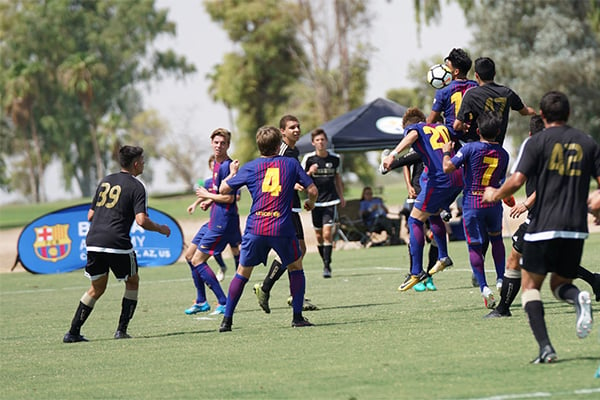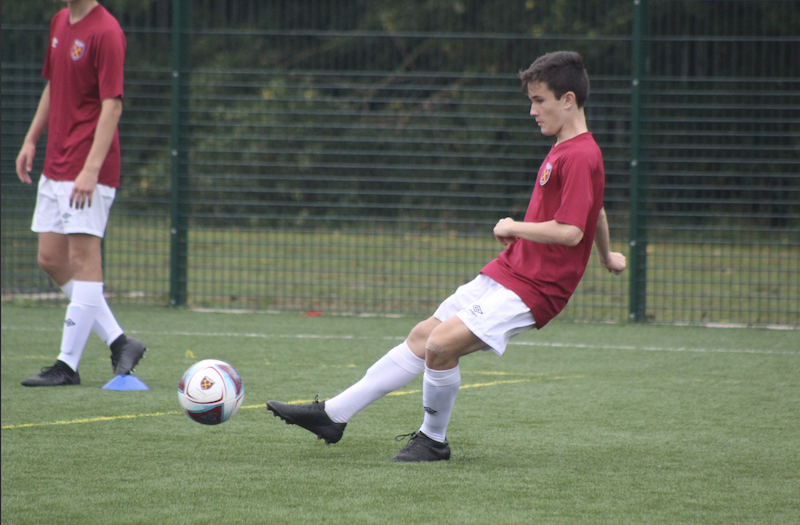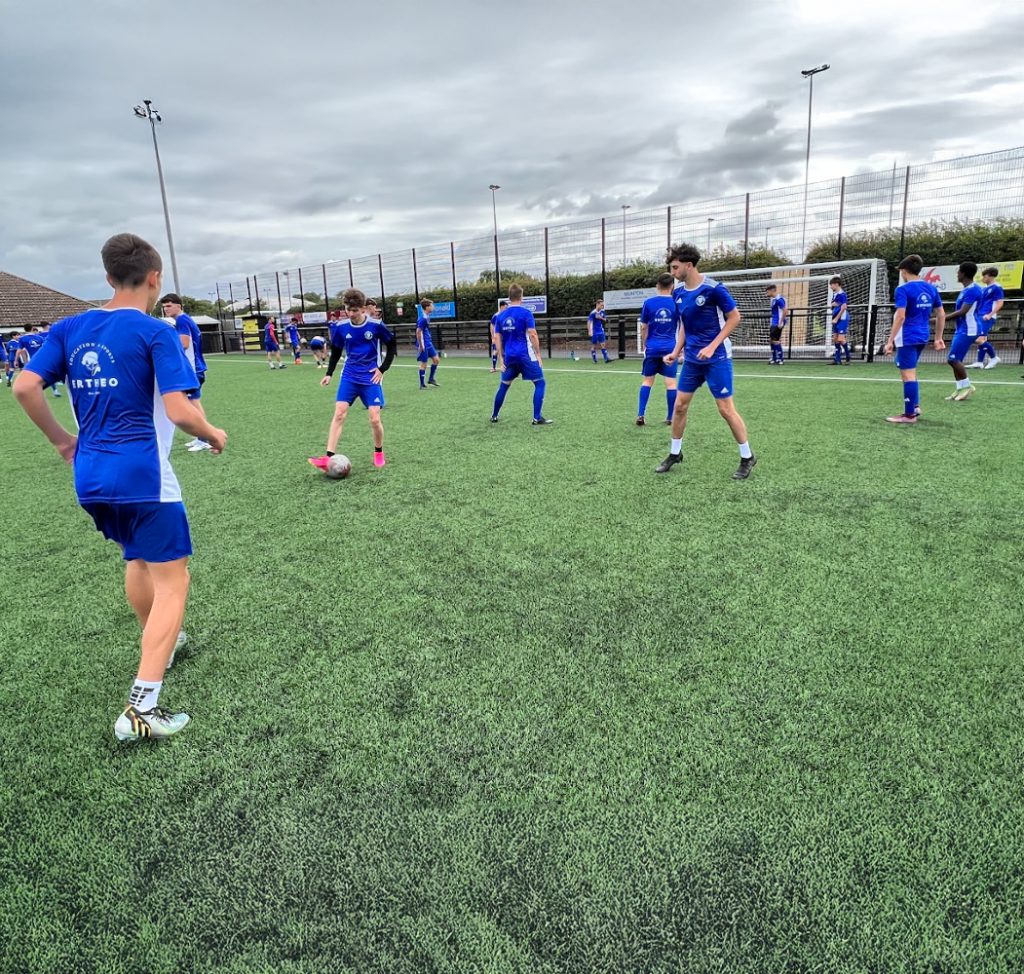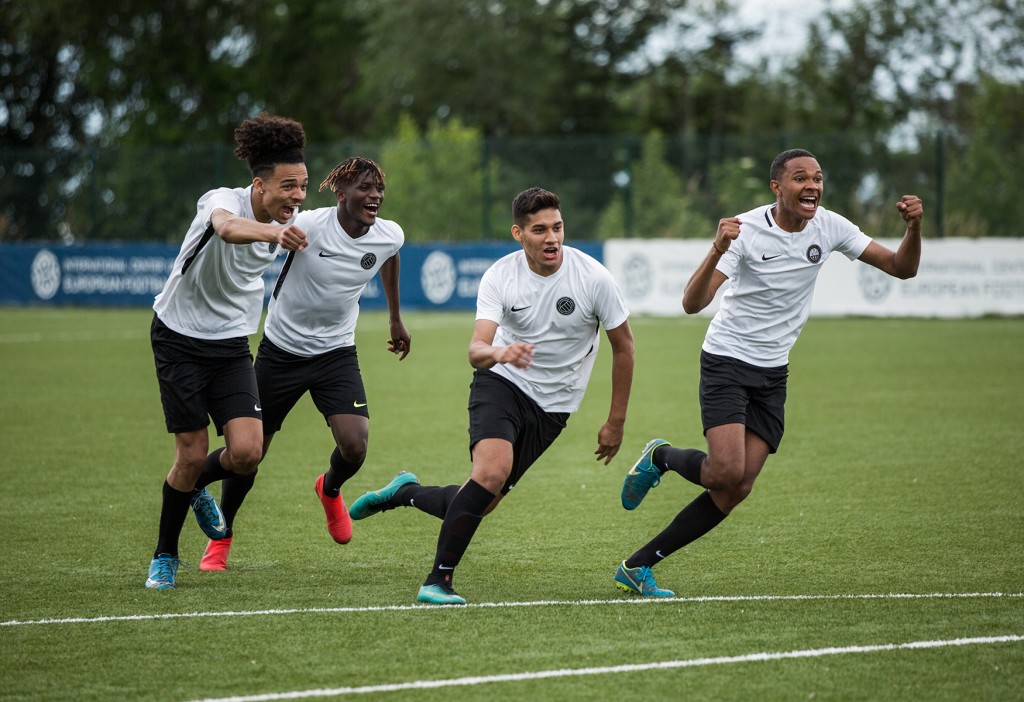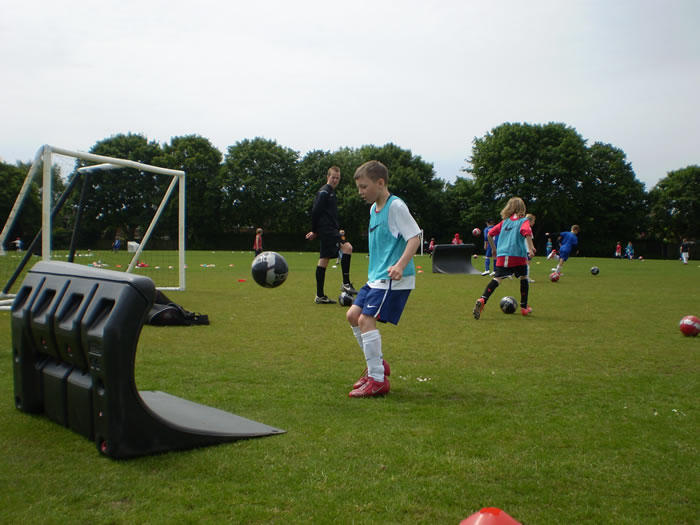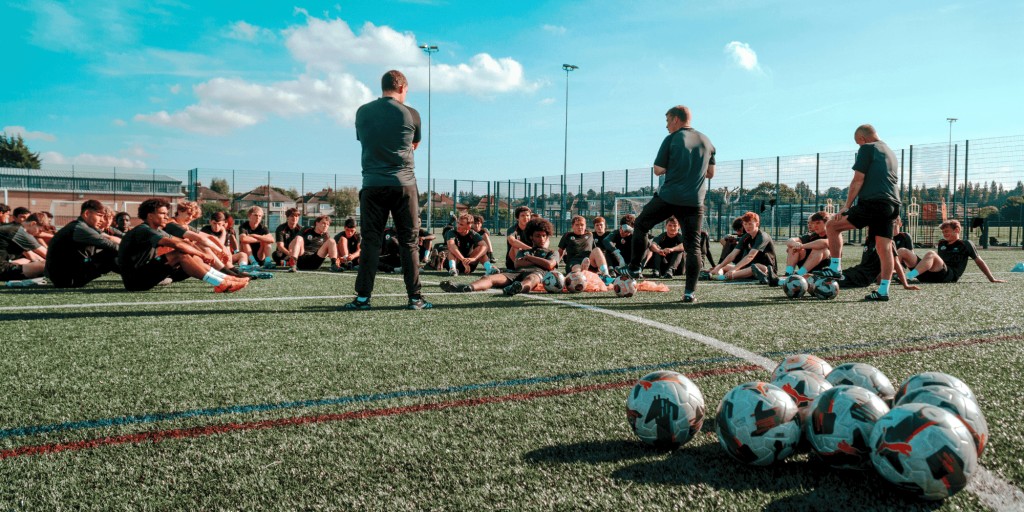Table of Contents
If you’re wondering how to become a professional soccer player, it takes more than natural talent and motivation. You’ll need contacts, support, information about your performance, knowledge about your opportunities, and probably a little bit of luck.
The high performance soccer academies we offer at Ertheo can help you get that push you need and really understand how to be a professional soccer player, as they provide an intense experience, where the training reaches a very high level.
In a recent Ertheo blog post, we explored the sacrifices needed to become a professional player, as well as giving some keys to becoming a professional athlete in another article. Becoming an elite player requires a lot of hard work, time, money and talent, yet there is no guarantee that you will achieve this goal.
The truth is that only the best players make a living from this sport. Do you know what your chances are?
what are your chances of becoming a professional soccer player?
Less than 1% of all children who enter a European soccer school at the age of 9 will achieve their dream of becoming a professional soccer player (Business Insider UK).
Use our tool below to test your chances of becoming a professional soccer player:
How to become a professional soccer player in Europe
There is no definitive answer to the question of how to become a professional soccer player in Europe.
Of course, all professional players have their unique paths and each country may have its particular requirements for becoming a professional soccer player.
That said, here are some general steps on how to become a professional soccer player in Europe.
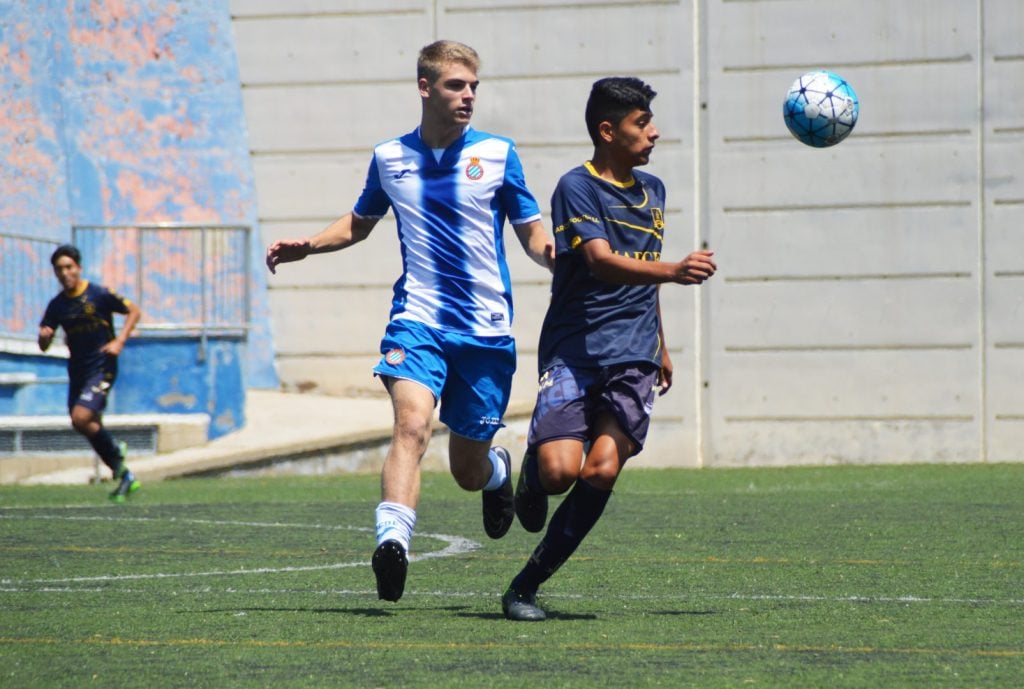
How to Become a Professional Soccer Player in Europe: Step 1 (Age 6-11)
Typically, Europeans begin their journey of becoming a professional soccer player by playing for their local teams, playing for official youth teams or professional soccer clubs. We will discuss youth teams in more detail in the following sections.
During this early age, talented players with the potential to become great soccer players tend to attend summer soccer camps affiliated with large club teams to improve their skills, test themselves against other talented youth and expand their knowledge of the game.
How to Become a Professional Soccer Player in Europe: Step 2 (Age 11-15)
As players reach their teenage years, they often continue to play for better and better official youth teams, being scouted by soccer coaches and/or attending soccer tryouts.
From ages 11 to 15, players may continue to play on smaller local youth teams without residency or may join larger youth teams at more successful soccer clubs that have residency options. However, youth teams with official soccer clubs may not be the best option for skilled young players.
Fortunately, students ages 13 to 18 also have the opportunity to join private high-performance soccer academies that focus more on each player’s individual goals (see section below). Although more expensive, high performance academies are the safest and best option for students who have the potential to become professional soccer players.
Option 1: Live with an official youth team and attend a private school
The most successful soccer clubs in Europe offer accommodation for their youth teams, so they can accept young footballers from all over the world. In addition, they have agreements with good international private schools so that students can continue their education while living and training with the club team.
These youth teams are more competitive and it takes more talent to pass the entrance exams and be accepted. Players as young as 9 or 10 years old are eligible. They train in the youth team while living in the residence provided by the soccer club and receive education at a private international school, until they can sign professional soccer contracts at the age of 16.
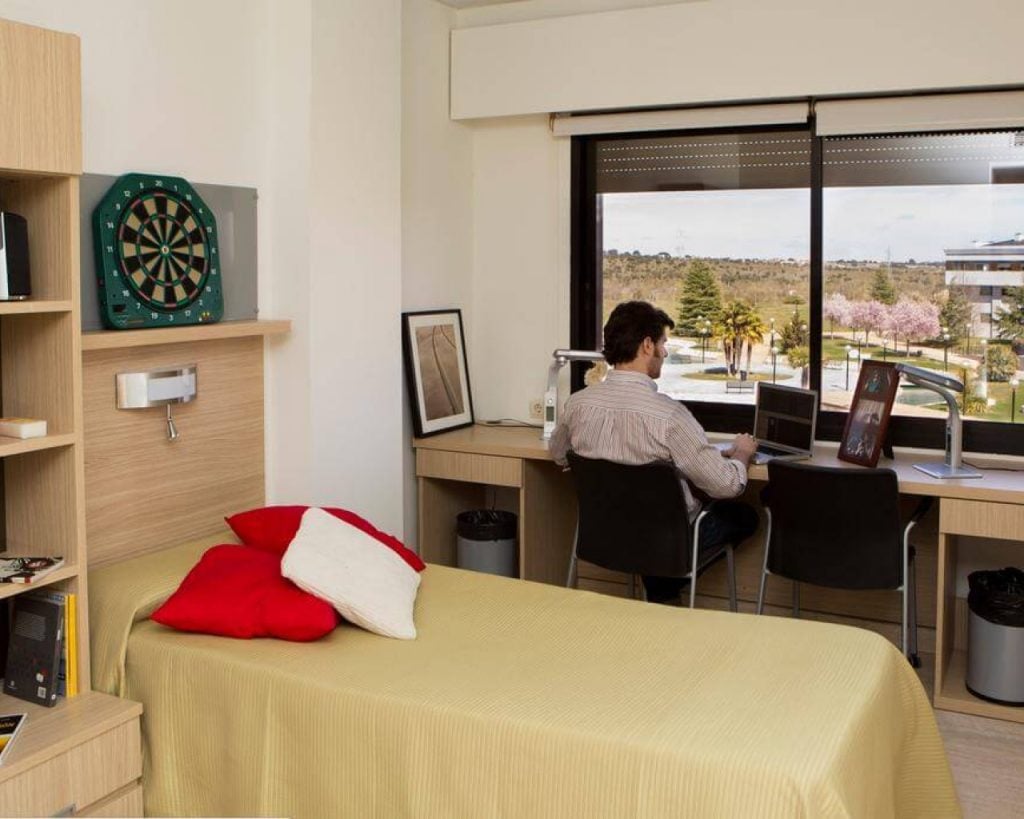
In the case of international players under the age of 15, due to FIFA regulations, their parents must also travel to the player’s country of destination for the child to live in the residence with the youth team.
Very few achieve this ultimate goal of signing a professional soccer contract at the age of 16, and even worse, even if they do manage to sign a professional contract at 16, their future in professional soccer is not guaranteed. In fact, 5 out of 6 players signed professionally are released before they turn 21.
Option 2: Training with an official youth team and living at home
Other official European soccer clubs have youth teams, but do not offer housing or schooling for their students.
Since these soccer clubs do not offer housing for their students, the student’s family must live nearby in order to attend. In some cases, the families of talented young players move so that their child can play on these youth teams.
These youth teams are primarily made up of local students and are less competitive. Therefore, although still unlikely, students from these youth teams are more likely to be signed directly into the club’s first team.
That said, a player who gets access to the first team of a soccer club that does not offer housing and education for its players is likely to be less successful.
Tip: How to get an edge over other youth players – UEFA Pro Online Personal Trainer from Afar
Youth team training sessions usually involve around 20-25 players led by one coach (or hopefully two coaches). This means that the coach has hardly any time to advise you for your individual improvement, as his main focus is on the overall good performance of the team.
During the match, the coach may highlight how your hits/misses may have influenced the final outcome of a match. However, it is very difficult for him to give you broader feedback, with individualized recommendations to enhance your strengths and improve your weaknesses.
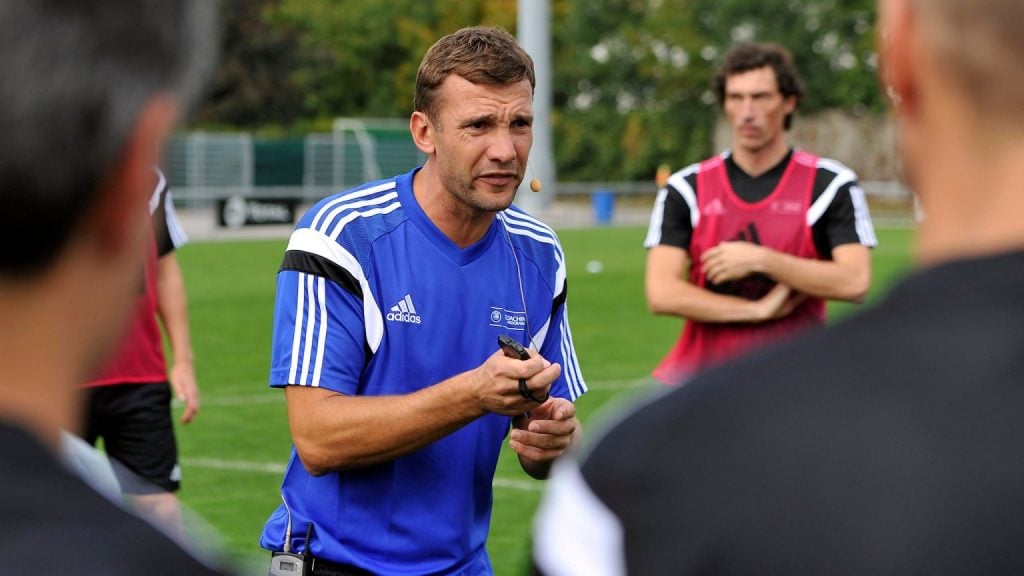
A remote coach can give you that personalized feedback that really helps you improve. You simply send him the videos of the matches, focused 100% on your performance on the field. The coach then carefully observes each match and sends you his detailed analysis in a report or by video call.
For more information: Online soccer courses and distance training
How to become a professional soccer player in Europe: Step 3 (Age 16-21)
At the age of 16. Players are eligible to sign professional contracts according to FIFA regulations (although some countries have stricter restrictions). Soccer clubs sign professional soccer contracts with players from their youth teams because they believe they can play for the club’s first team or because they believe they can loan or sell these players to other clubs for a decent amount.
Even after signing a professional contract, competition is fierce. Five out of six signed players are released before the age of 21. In other words, even after signing professional contracts, less than 17% of players go on to succeed in playing soccer. Despite these odds, players who don’t make it are left heartbroken and usually with no education to fall back on.
The problem with youth teams at official soccer clubs
While playing with youth teams (especially playing with youth teams that offer education and housing) may seem like a great opportunity for players who have the potential to become professional soccer players, it is important to recognize that soccer clubs act in their own self-interest, placing little importance on the success of their players and students.
First and foremost, soccer clubs typically place little importance on education. In most cases, students are required to attend classes, but academic performance is overlooked. After class, students attend training and/or games, and are too physically exhausted to focus on their studies. At this age, students need encouragement and guidance in order to perform academically, and soccer clubs simply do not provide this academic encouragement.
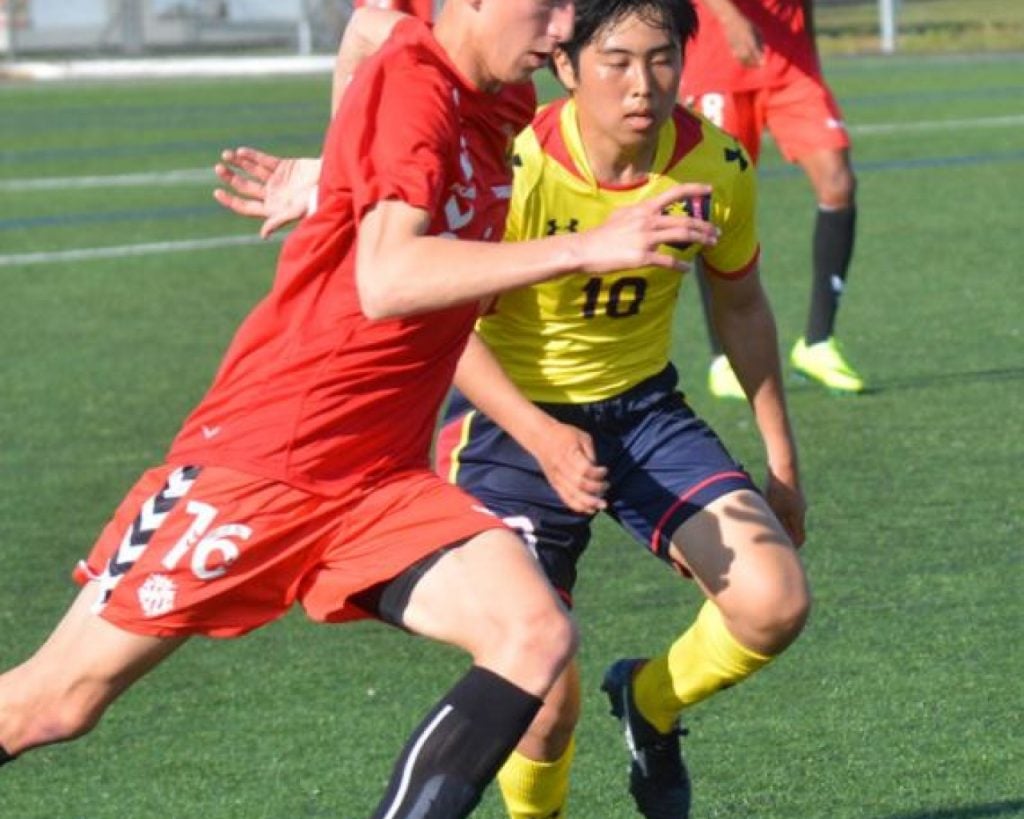
Even in some European education systems, students are not required to receive education after the age of 16. Since most of the students on these youth teams believe that they will make a living as professional soccer players, at 16, many young players choose not to continue their education.
Since only one in six players under professional contract at age 16 actually becomes a successful professional soccer player, the decision not to continue their education is often a terrible mistake. When students learn the sad truth that they will not make a living as a professional player, they simply don’t know where to turn or what to do.
Likewise, when soccer clubs release students from their youth teams, they offer little or no guidance to students regarding their future opportunities. Some students may have the opportunity to play semi-professionally, playing, for example, for a second division team or lower. However, if soccer clubs do not see the opportunity to make money from a player, they simply will not waste too much time exploring opportunities for him.
In conclusion, most official soccer clubs accept a large number of students and train them in the hope that a select few players will make it to the top. For the few that make it, the youth teams of official soccer clubs are great opportunities. For the rest of the players, youth teams (especially youth teams with school and housing) are brutally competitive, exhausting and full of false hope.
The solution to the problem with youth teams – High Performance Soccer Academies
Fortunately, players who are serious about becoming professional soccer players can join high performance academies, where they attend elite professional soccer training while receiving a world-class education.
Like some students who play for youth teams at official soccer clubs, students live at the high-performance academies in student residences. However, unlike coaches and teachers at soccer clubs, the teachers and coaches at high-performance academies place great importance on academic performance and encourage students to perform academically.

High performance academies are basically boarding schools that are highly focused on professional soccer training. Unlike professional soccer clubs with official youth teams, high performance academies work in the best interests of all their students.
Since they are not affiliated with any official soccer club, they assess students’ skills honestly and educate them on their best options in professional soccer according to their individual level of play.
Some students simply do not have the skills to make a living playing professional soccer. However, unlike professional soccer clubs, high performance academies pair their student teams with semi-professional teams so they can still earn money playing soccer.
High-performance academies always serve the best interests of their students. That’s because while youth teams receive funding from their respective soccer clubs, high-performance academies receive funding directly from their students.
In other words, soccer clubs and youth teams seek a return on their investment by signing, loaning, selling or simply releasing their players without concern for their players’ best interests. In contrast, high-performance academies derive their revenue from the cost of student tuition. Therefore, students at these academies always receive completely unbiased advice about their future, both on and off the soccer field.
Only a small percentage make it to top level professional soccer but many players get help to pass trials at lower level European or international teams and go on to play soccer semi-professionally.
Students who graduate from high performance soccer schools come out better prepared. Many decide to continue their education through a scholarship that allows them to study and compete in the USA or perhaps by studying something related to the world of soccer such as sports psychology, physical education and sports science, nutrition or physiotherapy, etc.
Regardless of their final decision, upon graduation, all students of the high performance academies are well informed about their real possibilities, both in the world of soccer as players, as well as in their projection in the work field.
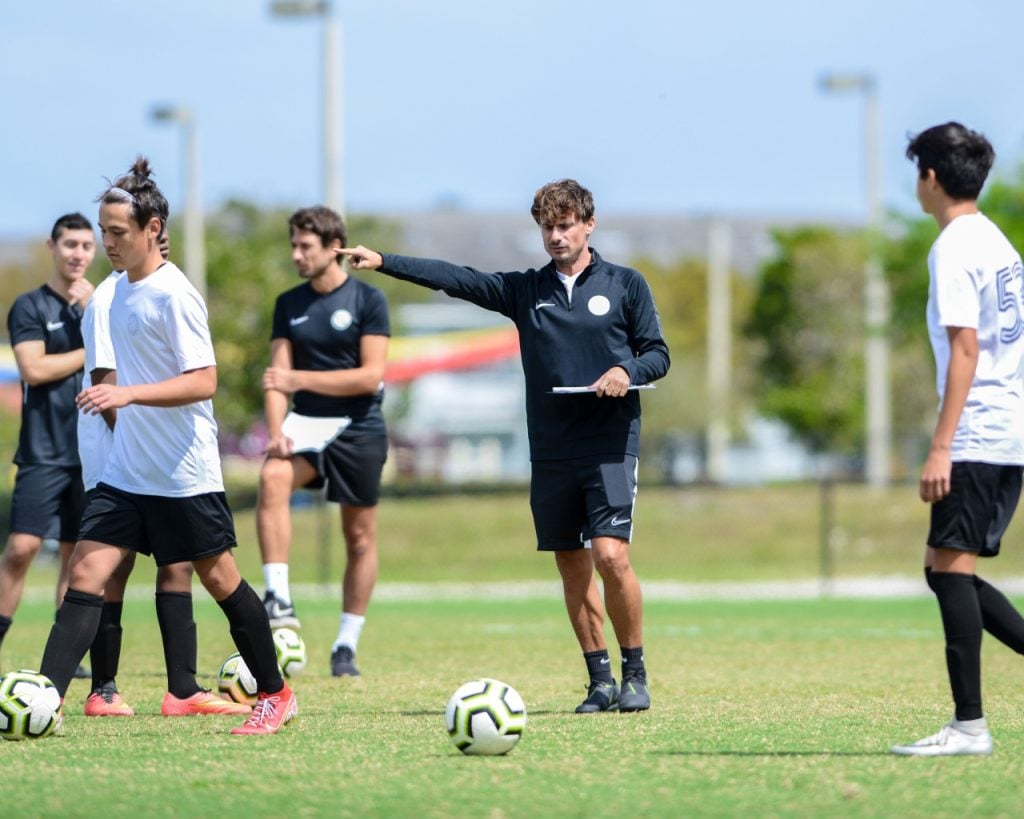
The academies are typically aimed at high school students between the ages of 13 and 18, although some universities offer education options for older students, from 18 to 21. Therefore, education options at high-performance academies can vary quite a bit.
If you are thinking about attending one of these soccer academies to increase your chances of becoming a professional soccer player, it is a good idea to research well the different options available because not all high performance academies offer the quality they promise.
The Problem with High Performance Soccer Academies – How to find the best soccer academy?
At Ertheo, we are expert sports program consultants and have first-hand knowledge of many academies, so we have created this basic guide for you to learn how to identify the really good academies from the ones that only look good.
What to consider when looking for a High Performance Soccer Academy
Below you can see the 10 most important things to look for in each academy to know which one is really right for you.
- The experience of the academy
- The number of players
- Type of matches or competitions offered
- Type of linkage (private academy vs. club-linked academy)
- The level of the players
- The level of the coaches
- The training system
- The support staff
- Other issues: education, sports facilities, residence or food
- The price and the possibility of getting a scholarship
Let’s look at each point in a little more detail. For more information, please consult our complete guide on how to choose a high performance academy.
Get to know the academy first hand
First of all, our first recommendation is that before deciding on an academy, go to a short-term program to get to know it first hand. There is no more valuable experience to evaluate an academy than spending a few days training there. By participating in an access test, you will get to know better all the intangible things that are more difficult to evaluate from a distance: the staff, the training methods, the level of the training, etc.
Participating in a long-term program at a soccer school requires a significant financial investment and visiting the academy is the surest way to ensure that we are making the best possible investment in the future. In addition, the academies that have the possibility of granting some type of scholarship, only grant these benefits to players who take a soccer test beforehand, since in this way they can examine the player in person to check his level and attitude on and off the field.

Having said that, we will now go on to mention the 10 most important points to evaluate a high performance soccer school.
1 The Academy’s experience
Knowing how many years an academy has been in operation can give us important information:
- It is a good sign that it has been maintained over time
- It probably has more students
- It is more likely to have its own training method
- It is more likely to have many contacts to look for opportunities for its best players
For all these reasons, asking about an academy’s years of experience can help you evaluate and compare it with other options.
2 The size of the academy
The preference between a smaller or larger academy is a subjective decision. Below we tell you more about the characteristics of each option so you can decide what is best for you:
Small academies
- May offer a more personalized treatment
- May be more economical (need less staff)
- Often send their players to local teams because they cannot create their own training group
Larger academies
- Offer a much more optimal atmosphere for improving performance as all players train, study and live together.
- As a general rule, the treatment is less personalized than in a very small academy
- They probably have more support staff on staff (sports psychologists, physiotherapists, nutritionists, etc.)
3 Matches or competitions
When you are training to improve your soccer skills, you will need to play matches to help you test everything you have learned.
Therefore, it is important to know how many matches are played per season, against which teams, whether they are official competitions or friendly matches, etc.
4 Academies Linked to Professional Teams Vs Independent Academies
The fact that an academy is linked to a well-known professional team does not guarantee its quality. You should ask if the players train with the official categories of the club or if there is any chance that a player from the academy in question will have a trial with the official club behind it.
Regarding independent academies, as they do not belong to any club they can offer more opportunities, as long as they are sufficiently experienced academies with many contacts.
5 The Level of the other Players in the Academy
This is one of the most important points as you need to find an academy that has the same level as you or a bit higher. To reach your full potential you need a competitive environment that forces you out of your comfort zone. Playing with other students of a much lower level will slow down your learning and a team of players much more advanced than you could be frustrating and slow down your progress.
6. Level of coaches
Evaluating coaches without knowing the academy is difficult. However, the coaches of an academy are one of the key pieces to learning. Don’t just look at their qualifications. Keep in mind that in an intentional academy, a coach has to be able to train a very heterogeneous group of students, from different languages, cultures and systems of play.
Also check if there are analysts and technology that you use to train and that allows the coaches to evaluate your performance.
7. The Academy System
Although the coaches are a key point of an academy, even more so is the training system. If the academy has a good system in place to train the coaches, it doesn’t matter so much if the coaches on the staff change, as the knowledge will continue to be passed on in the same way.
8. Support staff
It is important to know what kind of professionals work at the academy in addition to the coaches. For example, it is important to know if the academy has professionals with profiles such as: sports psychologist, physical trainer, nutritionist or physiotherapist, etc. These professionals on staff will be able to design a personalized plan to help you improve your performance. It is not the same to go once a month to the psychologist or nutritionist than to be in permanent contact with them and ask for help when you need something specific.
9. Other factors
In addition to everything directly related to soccer, there are other important things to consider when choosing a high performance school. Below we mention the most important ones.
- Education: it is very important that you continue your academic education while you develop as an athlete. Look for a soccer school that cares about the academic formation of its students and that has an educational offer according to your needs.
- The facilities: the quality of the accommodation and sports facilities is another thing to consider, taking into account that you are going to spend a long time training and living in the academy. Look at the quality of the soccer fields, the quality of the rooms, whether or not they have private bathrooms, the leisure facilities, or anything else that is important to you.
- Food: an athlete’s diet has a direct influence on his or her performance. Check what type of food is served at the academy and if they offer a varied and balanced menu that suits your tastes and/or nutritional needs.
- The staff: assess who the instructors are, what languages they speak, what their training is and if they have other staff at the academy such as doctors, nurses, etc.

10. Price / Scholarships
Now that you know the 9 main things you should value in a soccer academy, it is time to evaluate the quality-price ratio of the program since, in many occasions, a more expensive program does not mean that it is better.
The educational offer, the quantity and qualification of the staff or the quality of the facilities will be determining factors of the final price. However, there are times when the price is established following a marketing strategy to position itself in the market with respect to its direct competition.
As for scholarships, there are some academies that offer discounts on their programs for sporting or economic reasons (or both). Soccer schools always want to have good players on their team and are therefore willing to partially reduce the price of their program. However, in order to qualify for a scholarship, it is essential to attend a short-term program first. The coaching staff needs to know your current level, your potential and your attitude as a player and that is very difficult to evaluate from a distance.
Remember that to learn more about how to evaluate a soccer school you can consult our guide to choosing a high performance academy.
how to get into a soccer school?
High performance soccer academies only accept elite players who have the potential to become professional or semi-professional soccer players. They therefore require players to attend tryouts so that coaches can evaluate their performance and determine whether or not they are suitable for the academy. Kids soccer tryouts serve as a way for coaches to get a pre-test analysis of each player’s strengths and weaknesses.
There are three ways to try out before going to a high performance academy:
- Attending a summer camp.
- Training for a week or more with full-time students at the academy.
- Attending a one- to three-day tryout.
We wrote a full article explaining how to try out a high performance soccer academy and tips on which is the best option, etc. Click here to read the full article.
How Ertheo can help you
Ertheo is a sports and educational agency located in the south of Spain with connections to the best high performance soccer academies in Europe and USA.
We know the pathways to becoming a professional soccer player and we also collaborate with the most famous soccer clubs worldwide, and offer summer soccer camps with clubs such as Atlético de Madrid, Barcelona, Manchester City, Liverpool, AC Milan, Arsenal, Paris Saint Germain and Chelsea.
You can view our full list of summer soccer camps, or you can search by country. We offer programs in Spain, the United Kingdom, Italy, the United States and other destinations.
We are knowledgeable about the details of each camp and academy we offer, from training, staff, coaches, accommodation and education. We can help you choose the best option for you as you continue your journey to become a professional soccer player.
For more information on any of these programs or for advice on which of the summer camps or high performance academies is best suited to meet your needs, please feel free to contact us.
You can also email us directly at info@ertheo.com.



